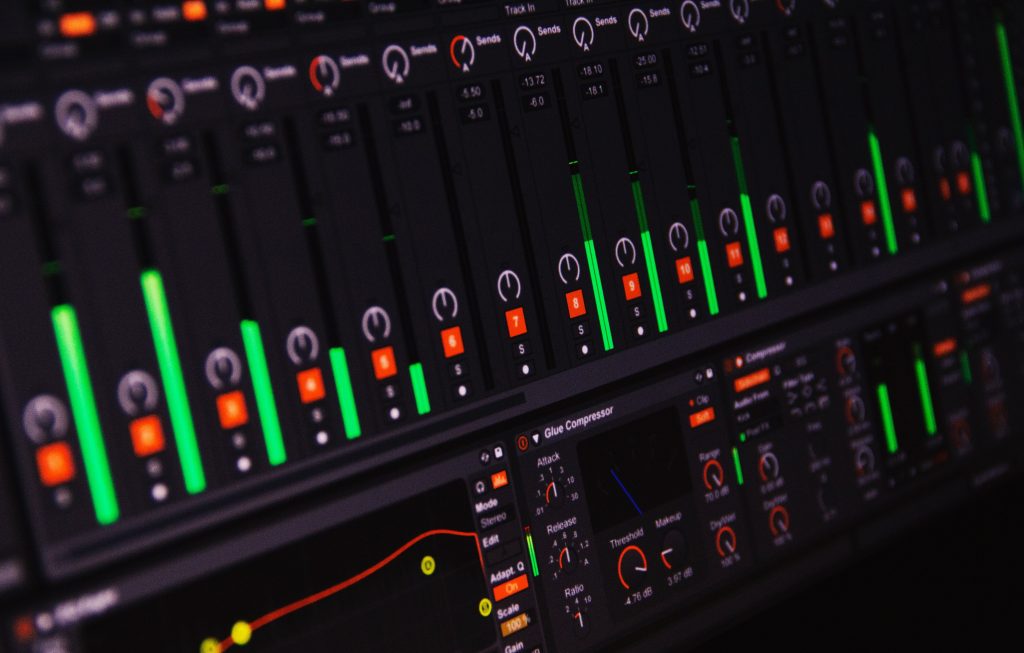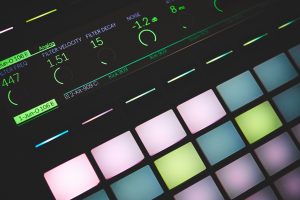How Long Does it Take to Make Professional Sounding Music?
For people who are just getting started with production and recording their own music, many wonder how much practice is involved before they can create professional sounding music that they are happy with. I often get asked questions like this:
“I’ve been making music non-stop for 6 months. Why am I not happy with how it sounds yet?“
In terms of life experience making music, 6 months is nothing. You’re basically a toddler in the world of music, but being a toddler is also a once-in-a-lifetime experience and has some advantages as well. In comparing yourself with people who have many more years of experience, it’s normal that it might feel like you’re still far behind. You’re not really being fair to yourself; you can’t expect to squeeze in so much knowledge in such a short time. Most people who make music for a long time usually have also worked in the company of other experienced artists, learned some valuable tips from their experiences, and many have also spent a lot of time at events or working with live sound. All these details are often overlooked by newcomers who often have the misconception that making professional sounding music is something that’s relatively easy to do. Making quality music takes a lot of time—it usually takes many years. However, the difficulty in being satisfied about what you do doesn’t decrease as you gain experience.
Each time I learn something new or that I understand that a type of detail is actually a mistake, I start hearing it everywhere in my past music and it drives me crazy. If you think that with over 20 years of production I might be more easily satisfied with what I make, then I have bad news for you—I still get frustrated, get writer’s block, and most of the time, I’m not entirely happy with how my songs sound. The difference between myself and someone new to making music is that in 20 years, I’ve learned something you’ll learn too: imperfection is a part of the process.
I met a DJ once who told me:
“All quality producers I love are full of self-doubt, but the ones that sound like crap are so full of themselves.”
Not being satisfied with your own work also means you’re willing to learn. So, what are the options available for someone just starting out? Is it just a matter of time?
There are a lot of paths one can take, and unfortunately, sometimes friends or other music producers send new artists down the wrong one. Generally, people will advise others to take a direction that worked for them, but this might not necessarily work for anyone but themselves. I say this before I get into more detail about how long I think it takes for a new artist to make art he or she is satisfied with; the advice below is what has worked for me and what I have seen work for others.
Understanding a sound
If you’re not happy with your sound, you should first ask yourself what sound you’re after. There are a few things to really grasp to understant what’s “wrong” in how you perceive this sound.
Sound monitoring: What monitors are you using? Are you using KRKs? Genelecs? Yamahas? Some people have poor equipment and it’s a handicap in how you’ll “understand” your sound. The clearer and more reliable your tools, the easier it will be. Before buying anything else for your studio, monitoring should be where you invest the most of your budget. You can buy very expensive gear, but if you can’t hear it properly, you’ll always be on step behind.
People will recommend certain speakers or headphones, but monitoring is extremely personal—I encourage you to go to a store and spend a good amount of time comparing different brands and models. I swear, when you hear your favorite track on a specific system and it triggers goosebumps, you’ll know that system is for you. Prepare to invest in good speakers—there’s nothing professional about buying cheap monitors just to save a bit of cash.
A/B referencing: Cross-validating is one of the most important things to do when you make music, and though a lot of people seem to have reservations about it, this is how professionals and people who want meaningful results will work. This goes for not only audio, but in pretty much any craft; you need a model, a reference, and something to guide your vision, or to keep track of your progress. As you work, you need to constantly check what’s going on. You might hate it at first, but that’s how it’s done. In terms of audio, having good headphones and other output systems to cross-reference with is very beneficial.
There are many tools out there that can help make doing A/B checks easier and more pleasant. For instance, Reference is a great tool to see if your levels are right. Magic A/B is also great, but doesn’t have the precision of Reference. Levels is also another great tool to analyze the technical requirements of your song. But more importantly, I recommend a good FFT such as SPAN by Voxengo (free) or Izotope’s recently released Ozone 9, which is a good overall bundle of tools to have that can really help make a difference in what you do. Ozone comes with an “assistant” that listens to your music and can propose fixes, enhancements, and overall adjustments, while comparing your work to a preloaded reference track—it can be a big investment, but it will be a tool you’ll use every time you work on music.
Listening volume. The worst way to listen to music when you want to understand it is at high volume (eg. 85dB+). I try to keep my listening levels low so I can easily hear what’s wrong. You’ll be able to tell that the highs are too sharp or that the low end is too low at lower volumes (something that’s barely possible to do at high volume due to the Fletcher Munson Curve which says that after a certain volume level is reached, the human hear stops perceiving things in a neutral way). Make sure you keep the volume low and don’t touch the knob as you work. Take pauses every 20 minutes too—you’ll notice problems more easily.
Sound preparation and “mental jogging”. When you actually sit down to make music, you shouldn’t just start right away; you need to do some “mental jogging” first. Forget shortcuts like smoking spliffs or drinking beer. Just sit there and listen to music at around 65dB (I use my apple watch to monitor decibel levels). Listen to music for a good 30 minutes to an hour, then make music. Never touch the volume knob. Your ears need to adjust to the right levels of highs, mids, and lows. If you touch that master volume knob, you’ll screw up the exercise.
Learning
To get better at anything, you need to educate yourself. Perhaps you love to learn by yourself (like me), but I swear, it only takes one video or a bit of reading to feel like you’re improving, and you’ll feel silly you didn’t look for that information before. I’m personally always on the hunt for tutorials, even on matters that I know a lot about already, because I want to make sure I know as much as I can about each subject. You’ll often realize that a problem has many ways it can be solved, and it’s important to learn multiple different approaches to achieve a certain result. Why? Sometimes, a certain approach will reach its limits and another one might be a better fit. This also applies to plugins and gear. You might have 3 different compressors, but they all have their own persona and might work better than one another in different contexts.
However, I wouldn’t worry much about tools to start. It’s more important to create conditions where you can properly understand sound, develop healthy habits towards your work, and constantly allow for time and resources to dedicate towards self-improvement.
Tools come and go—what really makes a difference in going from an amateur to a professional is how you understand and use them. Understanding how audio engineering works and how you perceive sound is hugely important.
Good Quality Schools and Learning Hubs
Point Blank Online Music School. I only hear good things about Point Blank, and their tutorials on YouTube always are quality.
Noisegate. I’m currently testing it and got a few tips from there but it’s mostly for new comers.
Puremix. For advanced users and mostly oriented towards Protools. Even so, I’ve learned a lot from them.
Loopmasters. They sell classes and they’re very good; a favourable ratio of get-what-you-pay-for.
SEE ALSO : Make Music Faster: Some Organizational Tips


 One of my friends came to my home one day and showed me a stunning album he made which totally blew me away. We quickly started talking production and he explained me that he was using Cool Edit (a very simple sound editor which in the early 2000s wasn’t even considered a DAW!) and no equipment whatsoever. None. Everything was made from scratch and with a lot of patience. Honestly, he changed my perspective on gear forever. Every time someone tells me they “need this” or “need that” to start working on their music, I have to yell “bullshit!” because I know and have heard otherwise.
One of my friends came to my home one day and showed me a stunning album he made which totally blew me away. We quickly started talking production and he explained me that he was using Cool Edit (a very simple sound editor which in the early 2000s wasn’t even considered a DAW!) and no equipment whatsoever. None. Everything was made from scratch and with a lot of patience. Honestly, he changed my perspective on gear forever. Every time someone tells me they “need this” or “need that” to start working on their music, I have to yell “bullshit!” because I know and have heard otherwise.